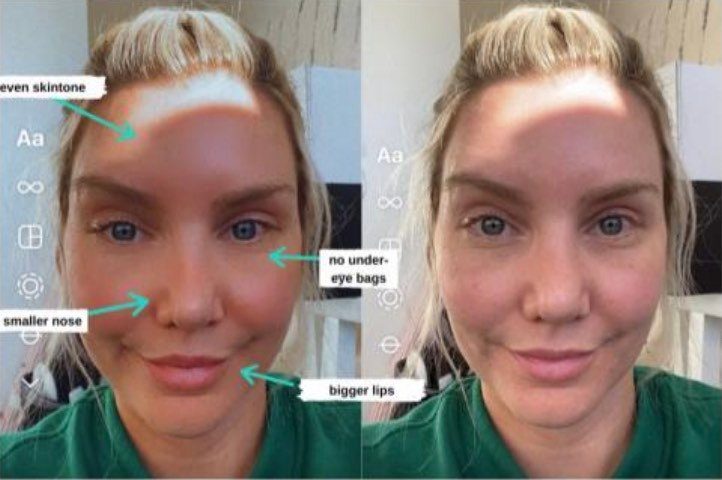“Instagram Face”: The Unrealistic Beauty Standards of Social Media Filters
Social media filters have been proven to alter facial features on an individual based on the “idealized beauty standard.”
March 23, 2022
Filters on Snapchat and Instagram photos and videos have created a new set of mental health threats for social media users.
Filters began as an innocent source of entertainment for users when they were first released. From the iconic dog filter on Snapchat to a flower crown filter on Instagram, many social media apps offer users the opportunity to make themselves look vastly different from what they look like in real life.
Recently, the online community has become hypercritical of the physical appearance of themselves and others.
Instagram and Snapchat filters have contributed significantly to this obsession and the self-esteem issues that come with it.
According to a study conducted by the American Academy of Facial and Reconstructive Surgery, surgeons have observed a 30% increase in patients that have expressed a desire to “improve their image on social media.”
Better known as “Snapchat dysmorphia,” users seek out professional surgery to achieve the exact version of themselves that appears in a filter.
Unlike before, filter users can become a version of themselves that is unrealistic and can lead to them being incredibly self-conscious of their physical appearances.
With some of the most popular filters named “Natural Beauty,” “Pretty Face,” and “Clear Skin,” users are forced to compare what they “could be” to their genuine and authentic “Natural Beauty.” The issue has recently shifted from users longing to look like their favorite celebrities to users constantly trying to measure up to the “idealistic” version of themselves.
A simple retouching of a blemish on one’s skin or teeth whitening may sound harmless. Still, the beauty standard that these filters have created has become exceedingly narrow and provides unnecessary and excessive changes.
According to an interview conducted by Forbes, psychiatrist Helen Egger said that the overall beauty standard has become known as “Instagram Face,” which is “characterized by high cheekbones, poreless skin, cat-like eyes, and plump lips.”
“It doesn’t support individuality; it supports conformity with the standard of beauty,” Egger said.
Even when I felt my most confident, I would log onto Snapchat and flip to my favorite filter. What’s a bit enhanced beauty, anyways? Such minor enhancements led to massive insecurities and doubts. The satisfaction with myself was never enough.
I started to pick apart my facial features one by one. With makeup, I began trying to change the shape of my lips or reduce the size of my nose. Before using filters on social media, I had never even considered changing those traits about myself.
If we all looked the way Snapchat and Instagram filters made us look, there would be no way for us to stand out from others and truly express ourselves with our natural appearances.
Now more than ever, we must remind each other of the beauty of individuality and continue working towards accepting an unfiltered version of ourselves.






